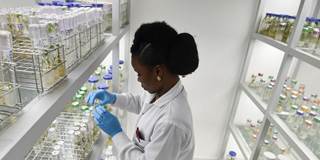Building Africa’s Scientific Talent
Ten years ago, a top South African physicist called on Africa’s educators to nurture scientific achievement by improving the capabilities of the continent’s youngest researchers. But despite significant improvements, much more work is needed to return Africa to the pinnacle of innovation that it once occupied.

TORONTO – Ten years ago, South African physicist Neil Turok made a bold prediction: the world’s next Einstein will be from Africa. A decade later, it is worth considering whether the continent is any closer to finding the next global genius.